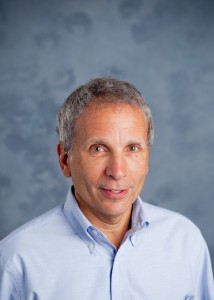
06 Aug To Your Health: Supporting Our Bacteria
Editor’s Note: It all started with a Wellness Conference that took place in March at The Peaks Resort & Spa. The talks featured part-time Telluride local Dr. Alan Safdi, who offered evidence-based medical findings for healthy living in easily digestible sound bytes. Telluride Inside… and Out attended a few sessions in the series and continues to offer nuggets from Dr. Safdi through a bi-monthy column, To Your Health.
The fact is we are only 10 percent human. The rest? Well, we are mainly poop.
Most of the DNA in our body are bacterial and the majority live in our GI tract. And the fact is we cannot live a healthy life without these bacteria. We are predominately poop DNA.
How do we keep this population of bacteria healthy and why is it so important?
Antibiotics may reduce overall bacterial diversity, which can have substantial consequences on the functional stability of microbiota in the colon. A recent study suggests that long-term and repeated antibiotic exposure might increase colorectal cancer risk because we need bacterial diversity and healthy bacterial strains in our colon which antibiotics often destroy. We should always question our health provider about whether the antibiotic being prescribed is absolutely necessary.
Clostridium difficile, or C. diff, has increased to epidemic proportions over the past decade. It is an infection that is often difficult to treat and leaves sufferers with frequent diarrhea, abdominal pain, nausea, and fever and can lead to dehydration, loss of appetite and weight loss. The very serious illness is an overgrowth of a toxin producing bacteria within our own colon often precipitated by antibiotic use. It is often very difficult to treat successfully and has made us embark on a rather novel therapy.
In order to treat this infection, we have found one of the most effective treatments in the resistant cases is a fecal transplant. In essence this means taking the poop from a documented healthy person and putting it in the colon of the sick person. The good bacteria then grow again, making it hard for the toxin-producing bacteria to survive.
Besides avoiding overuse of antibiotics, how can we keep our bacteria happy and healthy as possible?
We have all heard about probiotics or good-stool bacteria that gets placed in a food substance such as yogurt or into a pill. But do we really need them? Turns out there are many ways for us to keep bacteria healthy without just relying on probiotics.
It appears athletes have greater diversity in their gut bacteria than sedentary folks. Studies show this is particularly true when compared to the men with a high BMI.
Not only were there more types of bacteria in active men, but the bacteria were also found in greater numbers in the athletes’ guts. And the athletes had much higher levels of one particular species of bacteria linked to reduced rates of obesity and obesity-related disorders.
Another important factor is that the athletes ate more of all of the food groups than the non-athletes.
This fact brings up a phrase you may not have heard of: prebiotics, not probiotics.
Prebiotics are digestible food ingredients that affect the colon by selectively stimulating the growth and/or activity of one or a limited number of beneficial bacteria in the colon. Prebiotics are typically comprised of nondigestible carbohydrates. The most widely accepted prebiotics are the oligosaccharides fructooligosaccharides (FOS), and galactooligosaccharides (GOS). What does that all mean? We can potentially improve our health and our bacteria’s health by eating a lot of foods in the plant kingdom, avoid antibiotics unless absolutely needed, and exercise regularly.
About Dr. Alan Safdi:
Dr. Alan Safdi is board certified in Internal Medicine and in Gastroenterology and is a Fellow of the American College of Gastroenterology. A proven leader in the healthcare arena, he has been featured on the national program, “Medical Crossfire” and authored or co-authored numerous medical articles and abstracts. Safdi has been involved in grant-based and clinical research for over 33 years and is passionate about disease prevention and wellness, not just fixing what has gone wrong. He is an international lecturer on the subjects of wellness, nutrition and gastoenterology.




Sorry, the comment form is closed at this time.